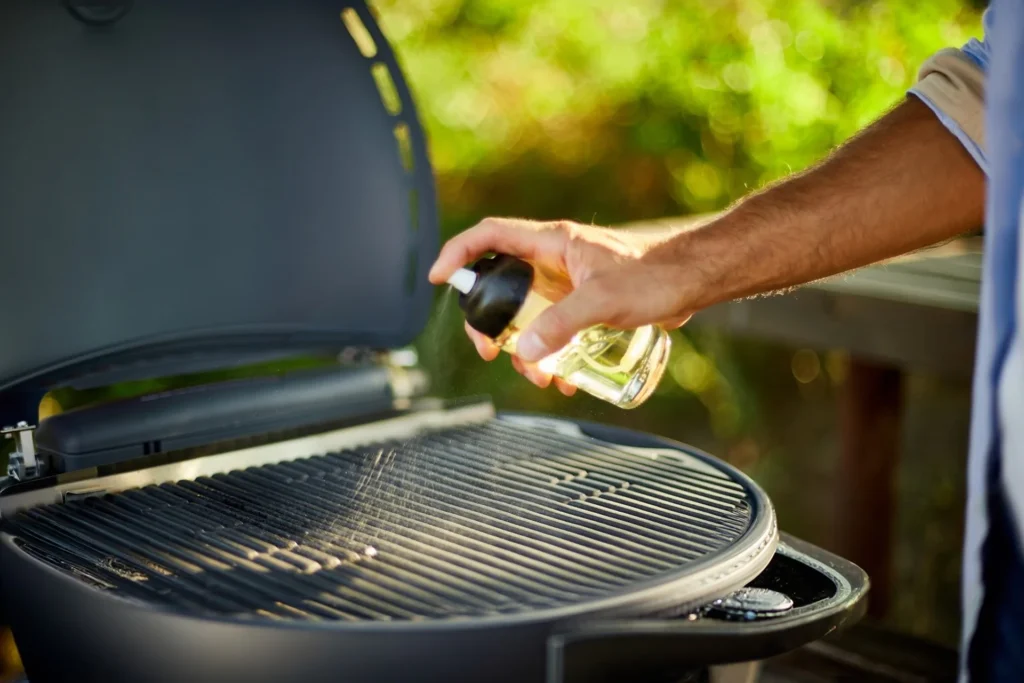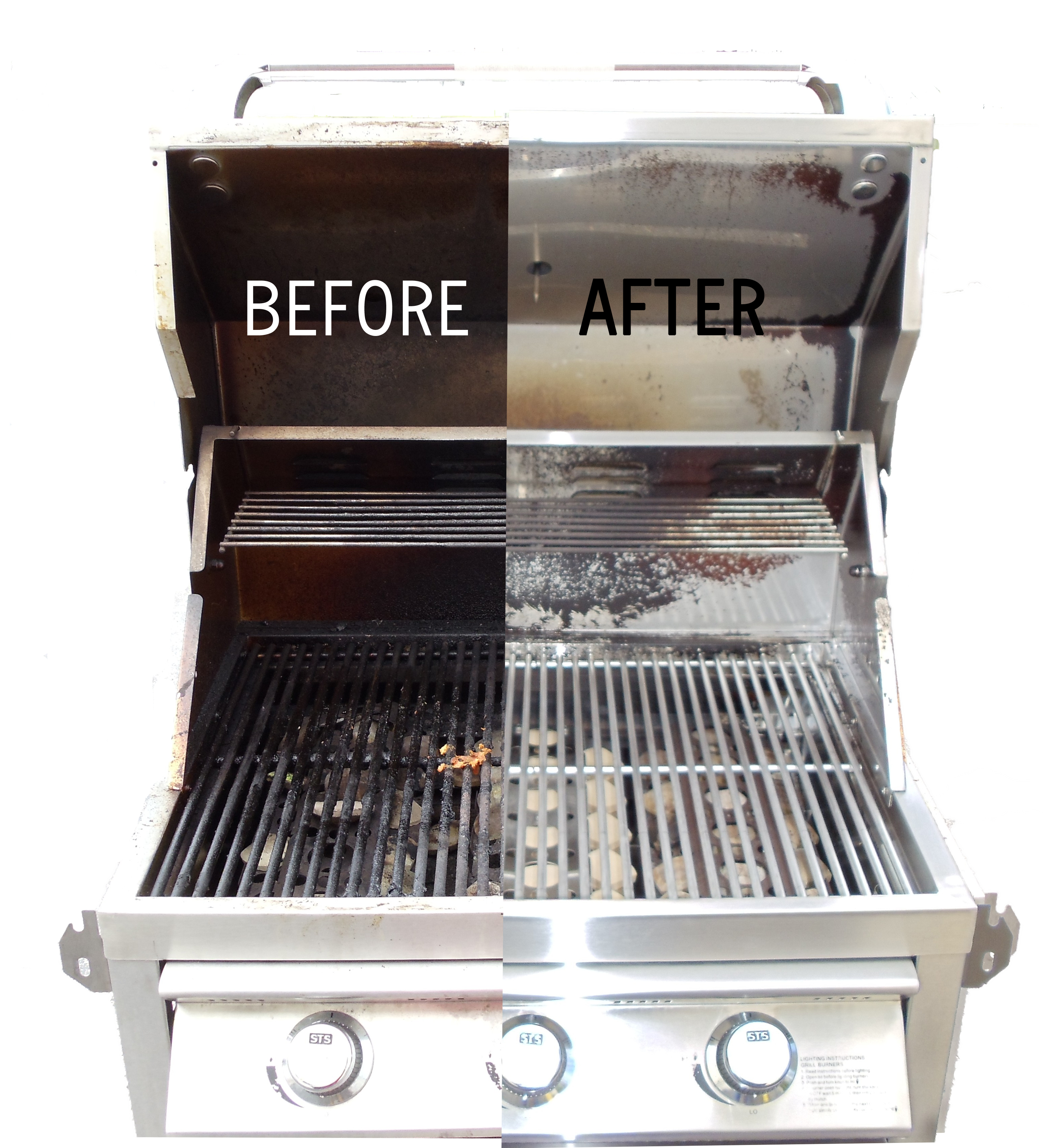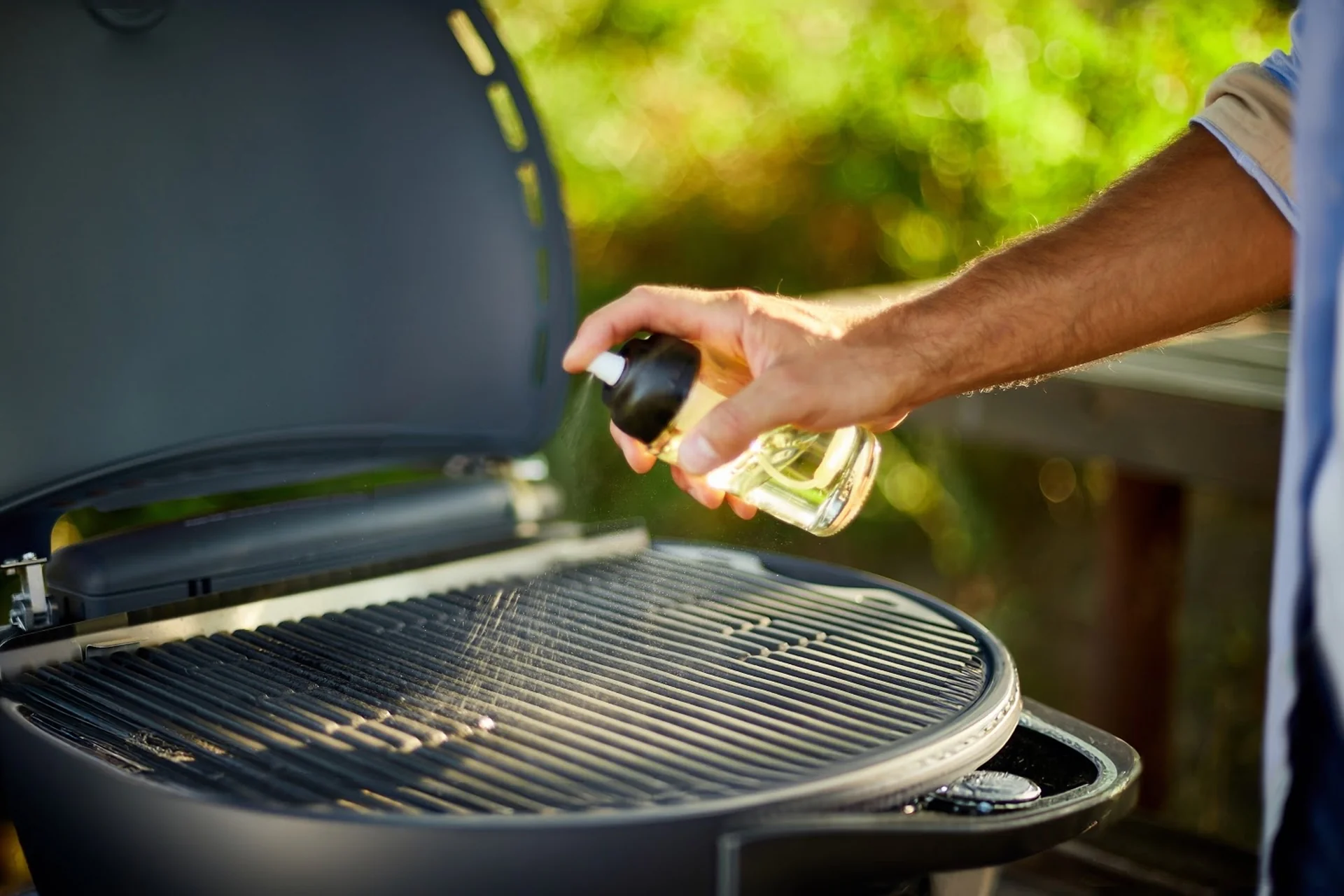A gas grill can serve many meals, yet it can also weaken fast when dirt, grease, and food buildup stay inside for long. Many backyard cooks clean only the top grate, then hope the rest will take care of itself. This often leads to uneven heat, flare-ups, slow ignition, strange smells, and even fires. A clean grill works faster, heats better, and lasts longer. It also keeps your food tasting like food, not old smoke and burnt oil.
Cleaning a gas grill is simple when you follow a clear process. You remove the parts, clean the grates, clear the burner tubes, empty the grease tray, and wash the cookbox. This keeps heat consistent and lowers the chance of flare-ups or a fire. Regular cleaning can also make the grill last more seasons with fewer repairs.
Many people avoid cleaning a grill because it feels like a big job. The truth is that small steps at the right time make the whole task easy. Once you learn the order, you only repeat the same steps. You will see that your grill heats faster, cooks more evenly, and smells fresh again.
What Tools Do You Need to Clean a Gas Grill?
A gas grill needs the right tools before cleaning starts. Simple tools make the work easier and faster. Many of these tools already sit in most homes, so you do not need special equipment.
A gas grill has many parts. Each part collects dirt in different ways. The tools you use will affect how well you reach tight corners and remove thick debris. You also avoid damage by picking tools that match the surface.
You mostly need a brush, scraper, gloves, soapy water, a bucket, and cloths. These tools help remove grease, clean grates, clear the burners, and wipe the interior without scratching stainless steel.
Common Tools for Cleaning
| Tool | Purpose |
|---|---|
| Grill brush | Removes food on grates |
| Scraper or putty knife | Removes grease buildup |
| Soapy water | Cleans removable parts |
| Bucket or basin | Holds water for soaking |
| Gloves | Protects hands |
| Steel wool | Heavy scrubbing for stubborn areas |
| Dry cloth | Wipes moisture |
Image

Cleaning works best when you prepare everything before touching the grill. This lowers the risk of forgetting steps and makes the whole job smoother. When the tools are ready, the cleaning becomes simple and predictable.
Cleaning tools also help keep the grill safe. For example, a clogged burner tube can cause yellow flames, weak heat, or gas pockets under the lid. A simple brush or thin wire can prevent that.
A clean set of tools means less bacteria and less leftover grease, so you avoid mixing old burnt oil with new food. Each tool has a job. Each job helps the grill last longer.
How Often Should You Clean Your Gas Grill?
Many grill owners clean only when problems appear. This often leads to uneven flames, flare-ups, or long preheat times. Cleaning frequency depends on how often you cook, the type of food you cook, and the weather.
You should clean the grates after every cook and perform a deep clean every two to three months. Regular cleaning prevents grease buildup, keeps ignition smooth, and lowers flare-ups caused by trapped oil.
People often ask when they should clean. The answer depends on usage patterns.
Basic Cleaning Frequency
| Cleaning Type | How Often |
|---|---|
| Grate brushing | After each cook |
| Wipe down exterior | Weekly |
| Empty grease tray | Every 5–7 cooks |
| Full deep clean | Every 2–3 months |
| Burner inspection | Every season |

Why Frequency Matters
A gas grill works by pushing flame through burner tubes. When these tubes fill with grease or food bits, the flame becomes uneven. You may see hot spots and cold spots. This makes cooking difficult. Cleaning often prevents this.
Regular cleaning also protects stainless steel from corrosive grease. Grease hardens with time. When it stays in place, it damages the metal. This shortens the life of the grill.
Frequent cleaning also lowers the chance of fires. Old grease catches fire fast. A clean grill is a safe grill. Consistent maintenance means safer cooking.
What Is the Safest Way to Burn Off Residue?
Burning off residue is one of the simplest ways to keep the grill clean. Many cooks already do this without knowing the full benefit.
The safest burn-off method is to preheat the grill on high for 10–15 minutes with the lid open, then brush the grates once loose debris turns to ash. This reduces buildup without overheating the grill or risking flare-ups.
Burn-Off Steps
- Open the lid.
- Turn on all burners.
- Set burners to high.
- Heat for 10–15 minutes.
- Turn off burners.
- Brush the grates when slightly cooled.
Image

Safety Notes
Burning off residue works because high heat loosens dirt. Yet this must be done safely. For example, never burn off residue if the grease tray is full. This can cause a fire. Always check the tray first.
Burning off removes surface dirt, yet it does not deep clean the grill. You still need to wash parts with water from time to time. Burn-off is only a fast method to keep the grill ready for the next use.
How Do You Properly Scrub Gas Grill Grates?
Grates collect the most food bits, grease, and carbon. When not cleaned, they trap flavors and bacteria. Many people scrub grates the wrong way or with the wrong tool. This leads to scratches or uneven cleaning.
You scrub gas grill grates by letting them heat first, brushing them with a grill brush, soaking them in warm soapy water, and scrubbing again with a softer brush or steel wool. This removes stuck grease without harming the metal.
Grate Material Differences
| Grate Type | Scrubbing Advice |
|---|---|
| Stainless steel | Brush when hot, soak when needed |
| Cast iron | Avoid soaking too long, dry fast |
| Porcelain-coated | Use soft brushes only |
Technique Tips
- Heat the grill first.
- Brush along the bars, not against them.
- Avoid harsh chemicals.
- Soak stubborn areas in soapy water.
Deeper Notes
Scrubbing grates removes more than dirt. It removes burnt flavors. Food cooked on clean grates tastes clean. Heat moves more evenly across a clean surface. You waste less fuel. You get better sear marks.
It is also safer. Loose carbon falls into the grill and can cause flare-ups. Cleaning stops this.
How Do You Deep Clean the Inside of a Gas Grill?
A deep clean focuses on the parts you cannot see easily. This includes the cookbox, deflectors, and inner lid. These areas collect grease and burnt food over time. Ignoring them leads to uneven heat and bad smells.
You deep clean the inside by removing all parts, scraping loose debris into the grease tray, washing the components in soapy water, brushing the burner area, and wiping the cookbox. This restores airflow and stable heat.
Steps to Follow
- Turn off gas.
- Remove grates.
- Remove flavorizer bars.
- Remove burners if needed.
- Scrape cookbox.
- Empty grease tray.
- Soak parts.
- Reassemble when dry.
Table: Parts Removed in Deep Cleaning
| Part | Why Clean It |
|---|---|
| Grates | Food contact surface |
| Flavorizer bars | Collect dripping grease |
| Burners | Affects flame quality |
| Cookbox | Main grease area |
| Grease tray | Fire prevention |
Why Deep Cleaning Matters
Deep cleaning restores proper airflow. It also keeps heat even. A grill full of old grease burns hotter in some areas. This wastes fuel and ruins food. Cleaning also lets you check for rust or damage early.
A clean cookbox also stops insects from hiding inside. Spiders often build webs in burner tubes. Deep cleaning prevents this.
How Do You Clean Burner Tubes Without Damage?
Burner tubes control heat. When they get clogged, flames change shape. You see yellow flames or weak heat. These signs show that the burner needs cleaning.
You clean burner tubes by brushing the exterior, clearing blockage with a pipe cleaner, and checking each gas port hole for clogs. This keeps the flame even and improves fuel flow.
Burner Tube Steps
- Remove grates and bars.
- Brush along the tube.
- Use a thin wire to clear holes.
- Avoid poking too deep.
- Check for rust.
Table: Signs of Dirty Burner Tubes
| Sign | Explanation |
|---|---|
| Yellow flame | Poor airflow |
| Uneven flame | Blocked holes |
| Slow heating | Tube clog |
| Popping sound | Airflow issue |
Why Burner Tube Care Helps
Clean burner tubes make heat stable. You get better cooking control. They also use fuel more efficiently. Poor burner condition wastes gas.
How Do You Prevent Grease Fires on a Gas Grill?
Grease fires happen when trapped oil touches high heat. They burn fast and can damage the grill. Many fires start in the grease tray.
You prevent grease fires by cleaning the grease tray often, brushing grates, removing buildup in the cookbox, and checking burner tubes. These steps reduce the fuel that a fire can use.
Prevention Table
| Action | Benefit |
|---|---|
| Empty tray | Stops grease pooling |
| Clean grates | Reduces flare-ups |
| Scrape cookbox | Removes hidden oil |
| Check burners | Keeps flame controlled |
Simple Safety Rules
- Keep lid open during ignition.
- Do not leave grill unattended.
- Use lower heat with fatty meats.
Why Prevention Works
Grease fires happen only when there is fuel. Removing grease removes that fuel. Prevention is much easier than trying to put out a fire. Good cleaning habits lower risk.
What Is the Best Way to Maintain Gas Grill Parts?
Gas grills have many parts. Each part needs proper care to last. Maintenance keeps the grill steady and reliable.
You maintain gas grill parts by cleaning them regularly, checking for rust, tightening loose screws, oiling grates, and storing the grill under a cover. This slows wear and extends lifespan.
Table: Part-by-Part Maintenance
| Part | Care Method |
|---|---|
| Grates | Brush and oil |
| Burners | Check ports |
| Lid | Wipe inside |
| Shelves | Clean spills |
| Igniter | Keep dry |
| Wheels | Tighten screws |
Why Care Matters
Regular maintenance stops small issues from turning into big repairs. It also helps the grill heat evenly and avoids sudden failures.
How Can You Season Grill Grates After Cleaning?
Seasoning protects grates. It prevents food from sticking. It also stops rust. Many cooks skip seasoning, yet it is simple.
You season grates by coating them with thin oil, heating the grill on medium for 15 minutes, and letting the oil form a non-stick layer. This protects the metal and improves cooking.
Seasoning Steps
- Dry grates fully.
- Apply thin oil layer.
- Heat grill.
- Cool and store.
Image

Why Seasoning Helps
Seasoning builds a natural shield. This shield resists moisture. It also helps food release easily. This makes cooking simple and clean-up easier the next time.
Conclusion
A clean gas grill cooks better, lasts longer, and stays safer. Each part of the grill has a role. When you clean the grates, tray, burners, and cookbox, you let the grill work the way it was designed. Regular cleaning prevents flare-ups, keeps heat steady, and protects metal from damage. With simple tools, steady habits, and a clear routine, your grill can stay strong for many seasons. A clean grill gives better flavor and a more enjoyable grilling experience every time.
FAQ
How do you know when your gas grill needs cleaning?
You can check for slow ignition, uneven flames, or strong smoke smells. These signs show grease buildup and blocked burner ports that need attention.
Can you clean a gas grill with vinegar?
Yes, vinegar helps loosen light grease on grates and interior walls. It works best for mild buildup but cannot replace full deep cleaning.
Is it safe to pressure wash a gas grill?
It is not recommended because water can enter valves and burner tubes. This can cause rust, ignition problems, and long-term damage.
What happens if you never clean your gas grill?
You will see more flare-ups, weaker heating, and possible grease fires. Dirt also shortens burner life and affects food flavor and texture.
Can you clean a gas grill while it’s still warm?
Yes, warm grates make brushing easier. You should avoid touching metal surfaces without gloves and never remove parts while hot.
Should you cover your gas grill after every use?
Yes, covering protects from rain, dust, and insects. It helps prevent rust and keeps the interior cleaner between cooking sessions.
How long does a gas grill last with proper cleaning?
A well-maintained grill can last 8–12 years or longer. Regular cleaning keeps burners strong and reduces corrosion inside the cookbox.
Can you use oven cleaner inside a gas grill?
It is not recommended because oven cleaner can damage coatings and leave chemical residue. Mild soap and warm water are safer choices.

